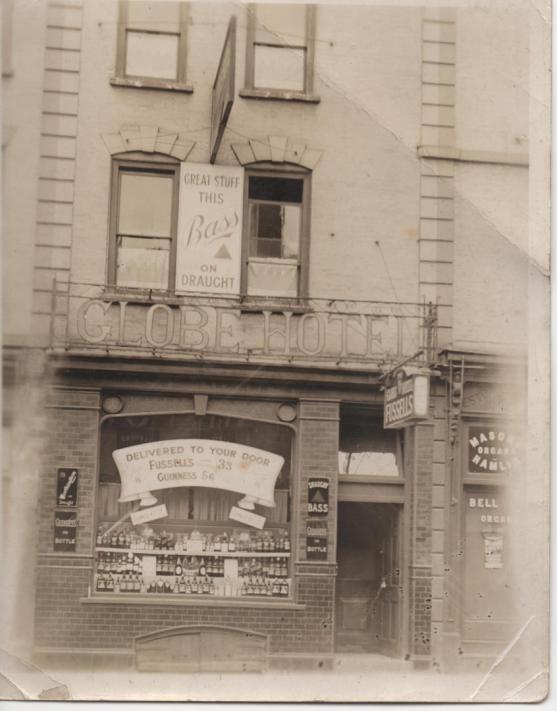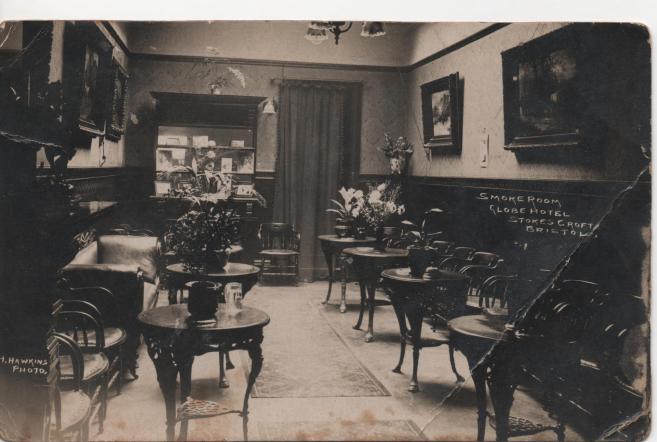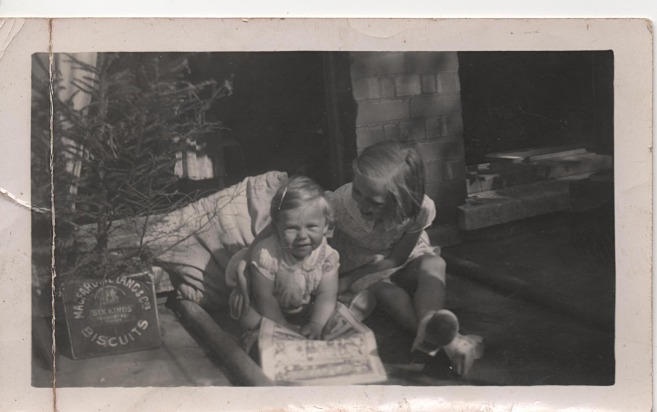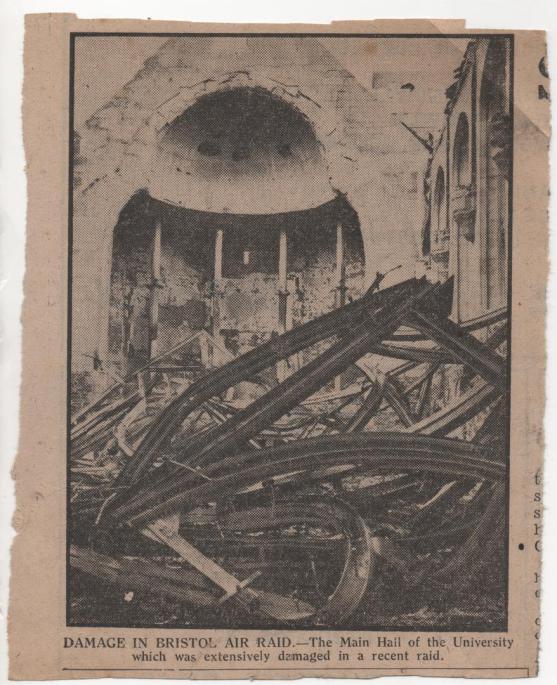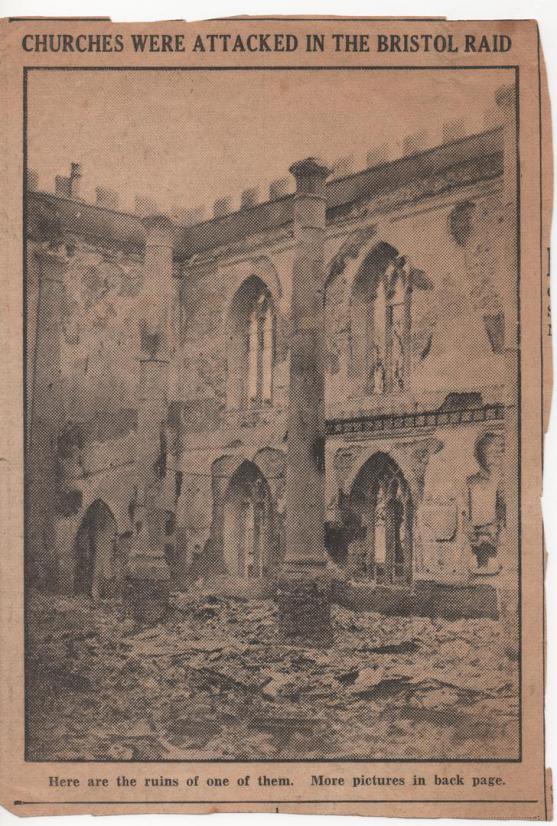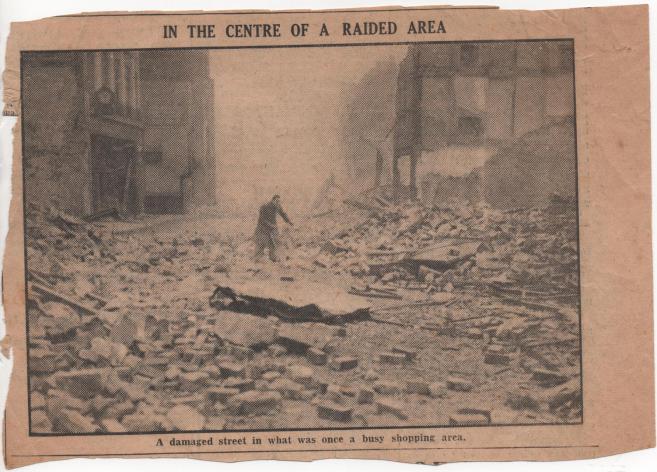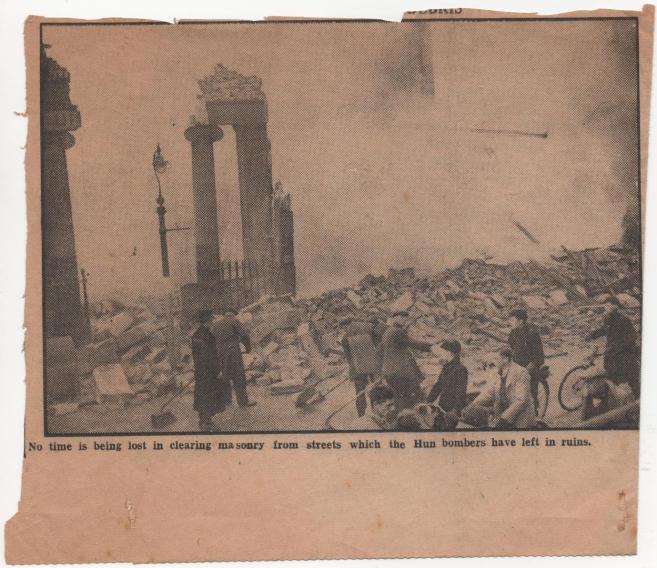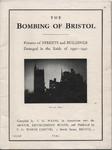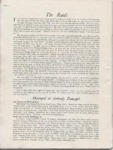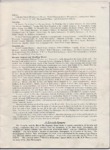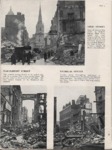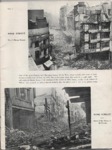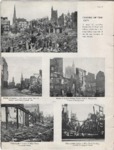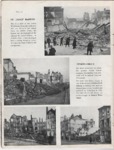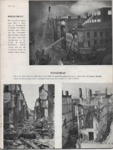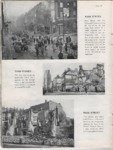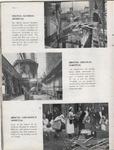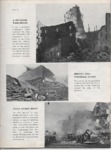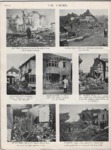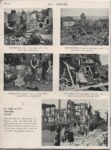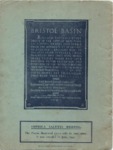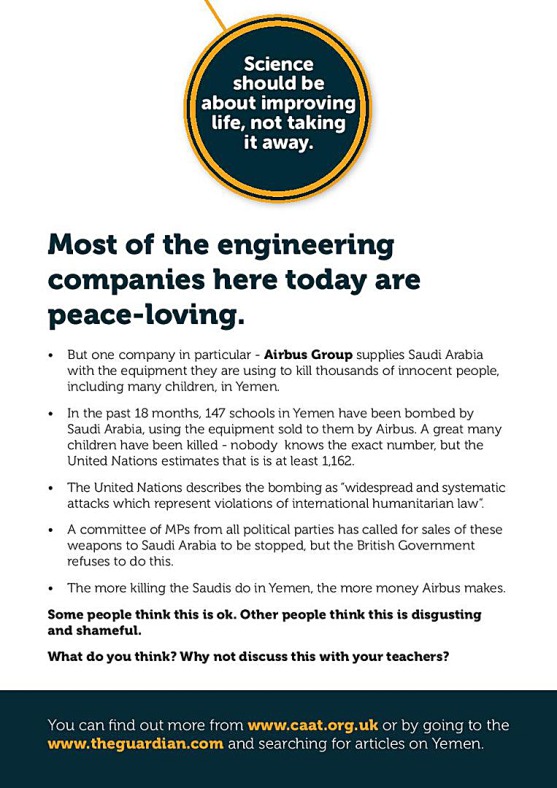Welcome to the Rudloe and environs website.
Here you will find news, articles and photos of an area that straddles the Cotswold Area of Outstanding Natural Beauty in north-west Wiltshire.
Contributions in the form of articles or photos are welcome. Even those with completely contrary views to mine!
Thanks to the website builder 1&1 and Rob Brown for the original idea.
Rudloescene now, in January 2014, has a sister, academic rather than anarchic, website about Box history here: http://www.boxpeopleandplaces.co.uk/
It contains thoroughly professional, well-researched articles about Box and its people.
Contact rudloescene through the 'Contact' page.
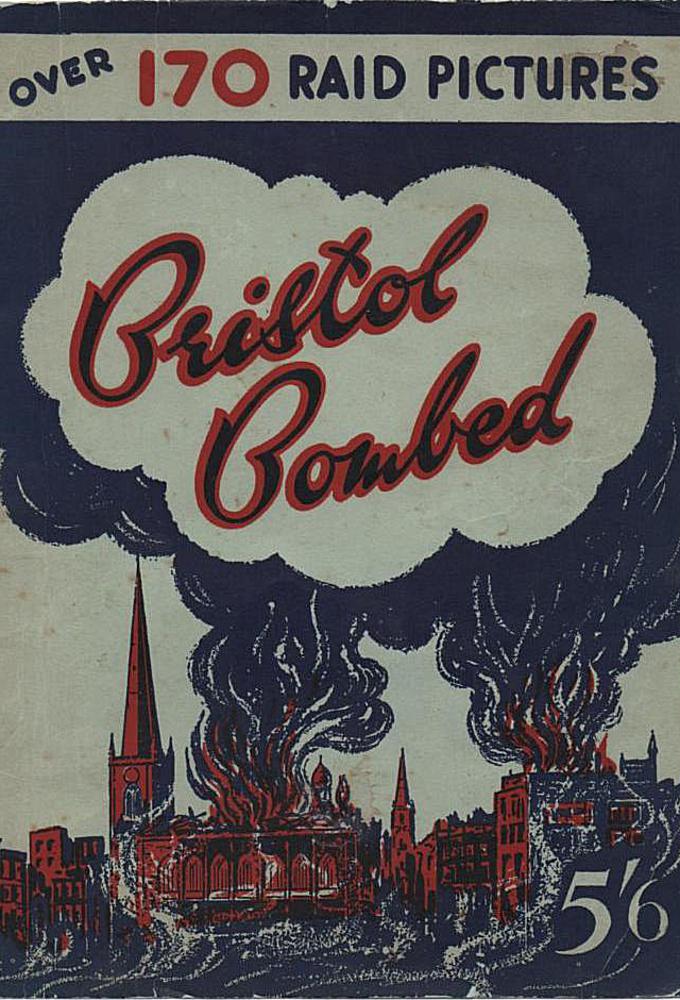
Cover of 1943 booklet with scores of photographs showing the damage caused by the German bombing of Bristol in November 1940 (courtesy of Phyl Fry)
The Pullen family was much involved in the German bombing raids on Bristol in that Phyl's father was the landlord of the Globe Hotel in Stokes Croft from 1928 until the hotel was hit by a bomb in November 1940. The family escaped through the beer delivery chute, shown in the photograph of the hotel below, and stayed with friends who lived locally (and had not been bombed!).
Phyl has provided the photos, the following newspaper cuttings (and others not published) from the Bristol Evening Post and the booklet 'Bristol Bombed' which contains scores of photographs of the bombing raids between November 1940 and April 1941 in which 1,299 people were killed, 1,303 seriously injured and 697 rescued from the debris of bombed buildings. 89,080 buildings were damaged including 81,830 houses completely destroyed and over 3,000 rendered unusable and later demolished (all statistical information from Wikipedia).
Following the bombing, Fussell's found Mr Pullen a temporary landlordship in Rode but then the family, Mr & Mrs Pullen and daughters Phyl and Jeanne, found a permanent home at the Hare & Hounds in Pickwick. The third sibling, John (who died in July 2014 - see The Quiet Man), was born in Corsham Nursing Home in May 1944. Mr Pullen remained the Hare & Hounds landlord until the mid-60s.
Phyl's Bristol Evening Post cuttings (27th Nov 1940) and extracts from 'Bristol Bombed' follow:
The number of Bristol fatalities resulting from German bombing has been given above. The total UK fatalities in World War II from all forms of bombing was 60,595 (The Bombing War, Richard Overy, p194). Contrast this with the death toll in just one German city, Hamburg, over three nights of bombing in July 1943, which was between 34,000 and 40,000 (The Bombing War, p436).
The necessity for Bomber Command raids on such a scale against civilian targets at night is a matter of great debate. Indeed, it appears that Sir Arthur 'Bomber' Harris was intent on making a name for himself by 'proving' his theory that the war could and would be won by such bombing. He was, to all intents and purposes, outwith the control of his political and military masters.
The Bomber Command raid on Dresden in February 1945, when the war was all but over, resulted in 25,000 fatalities (The Bombing War, p476). So, raids on just two German cities over four nights resulted in as many fatalities as in the whole of the UK throughout the war. Can these raids on essentially civilian targets be justified? A.C.Grayling would say not.
Sticking with Richard Overy for the moment, in discussing 1945 bombing raids he says "Detailed reconstruction of deaths caused by Royal Air Force bombing from February to May 1945, though incomplete, suggests a total of at least 57,000. If casualties inflicted by the American air forces are assumed to be lower, since their bombing was less clearly aimed at cities (my bolding), an overall death total of 82,000 is again statistically realistic. In the absence of unambiguous statistical evidence, the figure of 353,000 (total number of German civilian fatalities from bombing during the war) gives an approximate scale consistent with the evidence." (The Bombing War, pp 476, 477).
In chapter The Defence of Area Bombing, philosopher A.C. Grayling's thoughts on Bomber Command's actions are made clear " ... it is often argued that the greatest immorality would have been to lose the war, and that since this is so, anything and everything done to win it was legitimated by this overriding aim. It can certainly be granted that the overwhelming aim was to defeat the Axis powers, and it is surely right that it would have been an act of immorality not to strive fully and effectively to achieve that goal. But it is wrong to use this to justify indiscriminate bombing of towns and cities, for the familiar reason than ends do not automatically justify means." (Among the Dead Cities, A.C. Grayling, p264).
Grayling states "... the defender of bombing will respond to criticisms of the area bombing campaign by asking: what should the Allies have done instead? The answer is given by making the question more precise: what should the Allies have done instead of area bombing? The answer is: Bomber Command should have continued its efforts at precision bombing, and devoted its energies to making this tactic safer for its bombers and more effective. The fact that precision bombing proved highly dangerous in the early years of the war was the practical reason for switching to area bombing (at night), but there was an alternative which, if the principle of limiting harm to civilians had been maintained, could and doubtless would have been taken: namely, seeking remedies to the danger - as the (US) Eighth Army Air Force did, finding their answer in long-range fighter escorts. The RAF made no efforts in this direction, because it chose to concentrate on night area bombing." (Among the Dead Cities, pp266,267)
And Grayling continues "If Operation Gomorrah (the bombing of Hamburg in July 1943) was an immoral act, then how much more so were Dresden, Hiroshima and Nagasaki. If Operation Gomorrah was unnecessary and disproportionate, to use the language of 'just war' theory, then how much more so were the attacks on Dresden, Hiroshima and Nagasaki - and indeed the firebombing of Tokyo and other Japanese cities, the bombing of Berlin, and the destruction of Wurzburg and so many other German towns indiscriminately bombed in the very last months of the war for no better reason than they were unbombed, and that there were many bombers and bombs waiting to be used." (Among the Dead Cities, p272).
And from Grayling's 'Judgement' chapter "There are two major reasons why it matters to recognise and accept that the Allied bomber forces' area bombing campaigns constitute moral crimes. One is so that we in the victor nations can face up to our part in committing crimes in the course of that terrible war ... and the second reason is that we are at risk of repeating mistakes if we do not face up to their commission in the past." (Among the Dead Cities, p274).
Grayling continues: "The questions can go on, adding to the discomfiture they cause. What is the moral difference between bombing women and children and shooting them with a pistol? Is it that when you bomb them you cannot see them - you did not intend that particular woman and that particular child to die - and anyway they might escape the bombing perhaps by reaching a shelter? But if they are here against a wall just feet away from the muzzle of your pistol they cannot escape: it is more personal; you can see their eyes. Is that the difference - the anonymity of the act of killing from 20,000 feet?" (Among the Dead Cities, p276).
He states "On the basis of the foregoing chapters the answers I give to the following questions are these:
Was area bombing necessary? No.
Was it proportionate? No.
Was it against the humanitarian principles that people have been striving to enunciate as a way of controlling and limiting war? Yes.
Was it against what mature national laws provide in the way of outlawing murder, bodily harm, and destruction of property? Yes.
In short and in sum: was area bombing wrong? Yes.
Very wrong? Yes."
(Among the Dead Cities, pp276,277)
In Vietnam An Epic Tragedy, Max Hastings asserts (p 283) "Most aircrew take for granted the spurious moral absolution conferred upon those who escape eye contact with the people whom they kill".
But it seems we have still not learned the lessons of history. The UK, Russia, France and the US are still using the blunt instrument of bombing to try to resolve the problems of the Middle East; tens of thousands of innocent civilians have been killed. And even when we are not directly involved, our arms (the US and the UK are the biggest arms suppliers in the world) are being used in wars around the world.
And so we return to a local event. Last summer (2016), Michelle Donelan organized a 'Wiltshire festival of engineering'. Schoolchildren were able to see what is going on in the world of engineering - robots on Mars and so on - hopefully to inspire them to want to become engineers. A parent noticed that a division of Airbus (formally EADS), which is involved in producing components for Typhoon jets currently being used by Saudi Arabia to bomb Yemen, was present at the event. As a supporter of the Campaign against the Arms Trade, he produced the following leaflet in the form of a discussion paper for children to think about and perhaps discuss at school with teachers and classmates. A noble enterprise one would have thought ...
The parent went to the event and started to distribute the leaflet to children as they were arriving. And what happened? He was thrown out!. So he continued to distribute the leaflets outside in a
public space and I'll let him continue the story ...
"The centre manager, and a guy who described himself as the organizer of the event, ordered me to stop, and threatened to call the police. I readily agreed they should call the police. They did, but
the police never showed. So I went next door to the police station and "turned myself in", announcing that I was trying to give out leaflets, and people were attempting to stop me. A policewoman
returned to the site, and informed the organizers that I had a perfect right to distribute the leaflets outside the hall. This did not stop "the organizer" who it seemed had never come across the
concept of freedom of speech. When the police left, he persisted in trying to stop me handing out the leaflets. He started snatching the leaflets out of my hands, and, rather shockingly, out of the
hands of children who had taken them. I started filming. I asked him his name. He refused to give it. I asked if he was working for Michelle Donelan. He replied that he was a freelance event
organizer. He gave a false name. I finally got his real name - Tom Skinner. He continued to maintain that he was a freelance event organizer, rather than working for Donelan. A bit of googling, and
Tom Skinner turned out to be Michelle Donelan's Parliamentary Private Secretary and is now her Agent."
Of equal note is that Mr Skinner finally resorted to intercepting the school buses as they arrived at the car park, and persuaded the teachers to forbid the children from taking leaflets. The
teachers duly complied (although some children did still manage to get the leaflets). A subsequent letter to the head teacher of Sheldon, one of the schools whose teachers banned their children from
seeing the leaflet even though the teachers had not seen it, stated:
"I find it astonishing that a school, supposedly an institution of learning, would actively prevent children from reading anything at all, unless of course it was pornography, incitement to break the
law, or similar. Whilst I realise that teachers are in loco parentis and have a right to prevent children from reading something they deem unsuitable, to prohibit something without even looking
at it smacks of prejudice and censorship of the most sinister kind, and reflects extremely badly on your school. I am shocked at the actions of these teachers, and at the example they are giving
children by displaying such an attitude to the British tradition of democratic debate and peaceful dissent. It seems that discussion and debate of important issues is prohibited at
Sheldon. The information contained in the leaflet is largely taken from The Guardian. Perhaps you should prevent children from reading that also?" The school has not replied.
There is precious little morality in the arms trade and the use of arms and it seems that at all levels, we find it difficult to reconcile the use of arms with our involvement in their production and trade.
